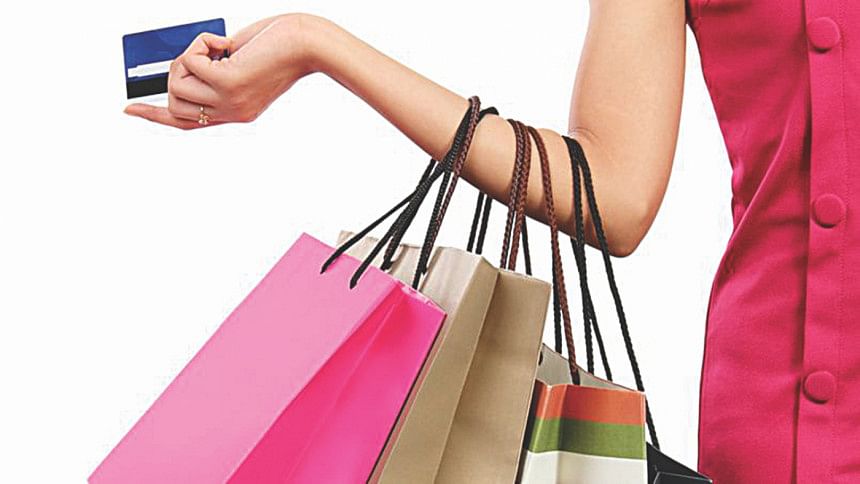The middle ground between cash and credit card

With the view to popularising plastic money in Bangladesh, both the global payment giants (Visa and MasterCard) are offering a host of discounts and cashbacks on their cards at point-of-sales -- and those with debits cards can avail them too.
Debit cards are the happy medium between credit cards and cash -- one gets the convenience of carrying a card without the risk of running up debt as they limit spending to what is available in one's current account.
And not only that, one simply does not have to worry about the drag of late fees, annual fees and interest charge and the possibility of theft.
Anyone can steal cash from your wallet, but it is much harder to steal money from a debit card. If the card is reported missing right after the incident, the bank will straightaway cancel it so nobody would be able to use the card.
Having a debit card in one's pocket also means you don't have to stand in a queue in a bank branch to withdraw cash; you simply stop by the nearest automated teller machine and take out as much as you need. And while you are at the cash point, you can get a mini statement or do a balance inquiry.
In Bangladesh, 53 of the 57 banks issue debit cards, mostly of Visa and MasterCard, meaning they come with most of the perks of owning a credit card.
With the view to popularising plastic money in Bangladesh, both the global payment giants are offering a host of discounts and cashbacks on their cards at point-of-sales -- and those with debits cards can avail them too.
For instance, Visa is offering up to 25 percent discounts for using their cards in a host of eating joints and clothing stores.
It is not just at point-of-sales and cash point where the debit card is of use. One can pay bills, recharge mobile number, buy train, bus and air tickets online, order food and do online shopping with the debit card -- from the comfort of one's home.
Shoyeb Ali, a private sector employee, could not be more grateful for the advent of debit card in Bangladesh.
Every couple of months his elderly parents visit him in Dhaka from his village in Lalmonirhat. Previously, his father would drop by the rail station 2-3 days before the trip to buy the train tickets to Dhaka.
But now, thanks to the online ticketing system of Bangladesh Railways and his debit card, Ali purchases tickets for his parents from Dhaka.
He also pays for his utility bills with his debit card, a facility that means he does not have to stand in long queues and go from one bank counter to another every month.
“I feel somewhat liberated because of my debit card,” said Sultana Ahmed, a housewife in Mohakhali DOHS.
She often travels to her ancestral home in Sylhet. Previously, she would have to nag her husband to go to the bus counter to get her ticket. But now, she purchases the ticket herself from the comforts of her home -- with her debit card.
Not just that, she does her mobile recharge too, whenever she needs to -- without stepping out of her front door.
“Whenever I feel like having food from a restaurant, I fire up the food delivery app and order away. I need not worry if I have enough cash at home,” she added.
Despite the many benefits, the use of debit card is yet to take off in a big way in Bangladesh.
Total transactions through debit cards at point-of-sales hover between Tk 1,000 to Tk 1,500 crore and ATM withdrawals Tk 20,000 to Tk 30,000 crore a quarter.
As of April, the total number of debit cards in circulation is 1.22 crore with a penetration of about 26 percent, according to the data from the Bangladesh Bank.

 For all latest news, follow The Daily Star's Google News channel.
For all latest news, follow The Daily Star's Google News channel. 



Comments